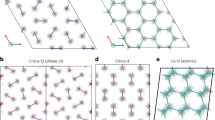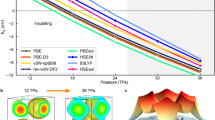Abstract
IN recent years there has been considerable effort devoted to the study of the ionization processes which give rise to ionization growth in different gases. Of particular interest from the fundamental point of view is the growth of ionization in helium, because in this case quantum mechanical methods may be more easily applied than in the more complex case of diatomic gases. Consequently, direct comparison may be made between experimental data on ionization coefficients, for example, and the quantum mechanical computations. Despite its simple atomic structure, however, the existence of high-energy metastable states of the helium atom, as well as of the helium molecule, results in the possibility of highly complex ionization processes occurring in this gas1–3. Moreover, experimentally, helium is a difficult gas on which to make observations because it has the highest ionization potential (24.6 eV) of any known gas. Most common impurities have ionization potentials (<16 eV) appreciably lower than the ionization potential of helium, and are thus preferentially ionized by direct electron impact even when present in only small quantities. Furthermore, ionization of the impurity atoms and molecules can be produced by collisions of the second kind with helium atoms in the high-energy metastable states, and by high-energy photons produced in the gas by the transition of excited helium states (which all have energies > 20 eV) to the ground-state. The effects of impurities, even when present in quantities as low as 1 part in 106, become increasingly important as the parameter E/p (E, the electric field, p, the gas pressure) decreases; because, as E/p decreases, the mean electron energy decreases and the ratio of ionized impurity atoms to ionized helium atoms then increases. These considerable experimental difficulties probably explain why there are so far no published data on the measurement of ionization growth in helium at high gas pressures and low values of E/p.
This is a preview of subscription content, access via your institution
Access options
Subscribe to this journal
Receive 51 print issues and online access
$199.00 per year
only $3.90 per issue
Buy this article
- Purchase on Springer Link
- Instant access to full article PDF
Prices may be subject to local taxes which are calculated during checkout
Similar content being viewed by others
References
Llewellyn-Jones, F., Ionization and Breakdown in Gases (Methuen, 1957).
Phelps, A. V., Phys. Rev., 117, 619 (1960).
Davidson, P. M., Proc. Phys. Soc., 80, 143 (1962).
Jones, E., and Llewellyn-Jones, F., Proc. Phys. Soc., 72, 363 (1958).
Townsend, J. S., Phil. Mag., 11, 1112 (1931).
Dunlop, S. H., Nature, 164, 452 (1949).
Gill, E. W. B., and Pidduck, F. B., Phil. Mag., 23, 837 (1912).
Townsend, J. S., and McCallum, Phil. Mag., 17, 678 (1934).
Davies, D. K., Llewellyn-Jones, F., and Morgan, C. G., Proc. Phys. Soc., 80, 898 (1962).
Author information
Authors and Affiliations
Rights and permissions
About this article
Cite this article
DUTTON, J., LLEWELLYN-JONES, F. & REES, D. Ionization Coefficients in Helium at High Pressures. Nature 200, 58–59 (1963). https://doi.org/10.1038/200058a0
Issue Date:
DOI: https://doi.org/10.1038/200058a0
Comments
By submitting a comment you agree to abide by our Terms and Community Guidelines. If you find something abusive or that does not comply with our terms or guidelines please flag it as inappropriate.



